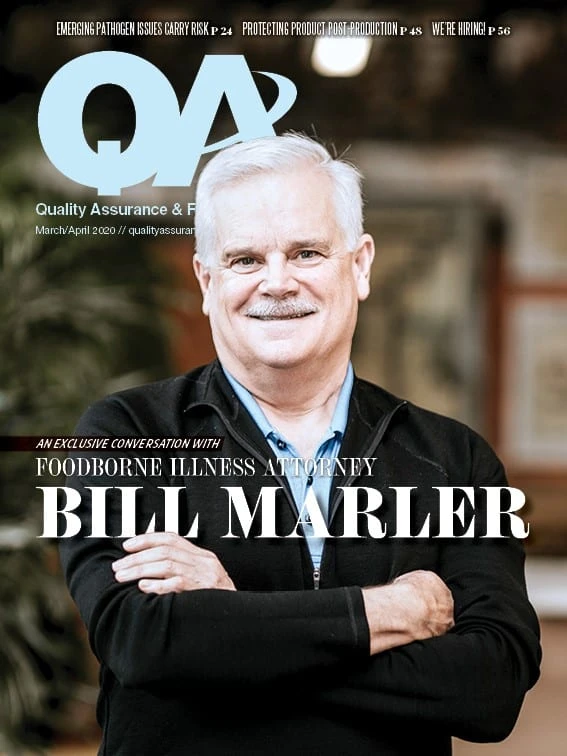
Q. When must I label my food as bioengineered?
A. The world is at odds over whether bioengineered foods (commonly referred to as genetically modified or GMO) are a blessing or a curse. Even the federal government appears divided on this question. Case in point: FDA doesn’t generally require food manufacturers to disclose that foods are bioengineered, because the agency generally considers such foods to be safe and materially identical to their conventional counterparts. In fact, FDA has even suggested that it is misleading to label food as not being bioengineered because doing so could cause the consumer to believe that bioengineered foods are inherently bad.
But Congress seemingly disagreed, and in 2016, it passed the National Bioengineered Food Disclosure Law. That law directed USDA to establish mandatory standards for disclosing bioengineered foods. USDA promptly complied, and the standard, which you can find in the Electronic Code of Federal Regulations (eCFR) at 7 CFR 66, was implemented on January 1, 2020. All regulated entities must comply by January 1, 2022.

So what does that mean to you? First things first: what do you produce? The standard applies to all foods that are subject to FDA labeling requirements, but it doesn’t apply to food regulated under the meat, poultry, or egg product inspection acts unless the predominant ingredient in the food item is regulated by FDA. So if you produce, for example, whole chickens, then the standard doesn’t apply.
Next, even if your food is regulated by FDA, you may nevertheless qualify for an exemption. The rule exempts food served in restaurants and other similar retail establishments; food manufacturers with annual receipts of less than $2.5 million; food ingredients containing five percent or less of inadvertently added and unavoidable bioengineered ingredients; foods derived from animals that have consumed feed that is in any way bioengineered; and foods certified under the National Organics Program. If you meet any of these exemptions, the standard does not apply.
But if your food otherwise falls under the standard and you don’t qualify for an exemption, you will need to review the List of Bioengineered Foods, which you can find at 7 CFR 66.6. If your product contains any of the foods on the list, then you must disclose this unless you can show that your ingredients are not bioengineered. And even if your product does not contain any of the foods on the list, you must still disclose if you have actual knowledge that it contains bioengineered ingredients. Disclosure can be in the form of a text disclosure, a symbol, an electronic or digital link, or a text message. Check 7 CFR 66.102-66.108 for details.
As of September 2019, the list consisted of alfalfa, certain apple varieties, canola, corn, cotton, certain eggplant varieties, certain papaya varieties, certain pineapple varieties, potato, AquAdvantage salmon, soybean, summer squash, and sugarbeet. USDA’s Agricultural Marketing Service will update the list annually. Firms have 18 months to comply whenever new foods are added to the list.
A word about detectability. You don’t need to disclose under this rule if any modified genetic material is undetectable. What does that mean? It means that you don’t need to disclose if you maintain any one of three different types of records: (1) records verifying that the food is sourced from a non-bioengineered crop or source; (2) records verifying that the food has undergone a refinement process validated to make the modified genetic material undetectable; (3) certificates of analysis or other records of testing that confirm the absence of any modified genetic material. See 7 CFR 66.9.
This regulation might settle the debate over which foods must be labeled, but it almost certainly won’t settle the debate among consumers over whether bioengineered foods are a blessing or a curse. That debate is likely to rage on.

Explore the March April 2020 Issue
Check out more from this issue and find your next story to read.
Latest from Quality Assurance & Food Safety
- Chef Robotics Introduces Pat-Down Capability for Meal Presentation and Sealing
- USDA Launches Regenerative Pilot Program
- Indoor Ag-Con Adds Food Safety Track to Conference Lineup
- IDFA Recognizes Federal Officials for Support of U.S. Dairy Industry
- Tetra Pak Acquires Bioreactors.net
- Fresh Del Monte Receives Rabobank Leadership Award
- São Paulo Earns Guinness World Record for Largest Municipal Food Security Program
- KPM Analytics Releases Ready-to-Use NIR Calibration Packages





